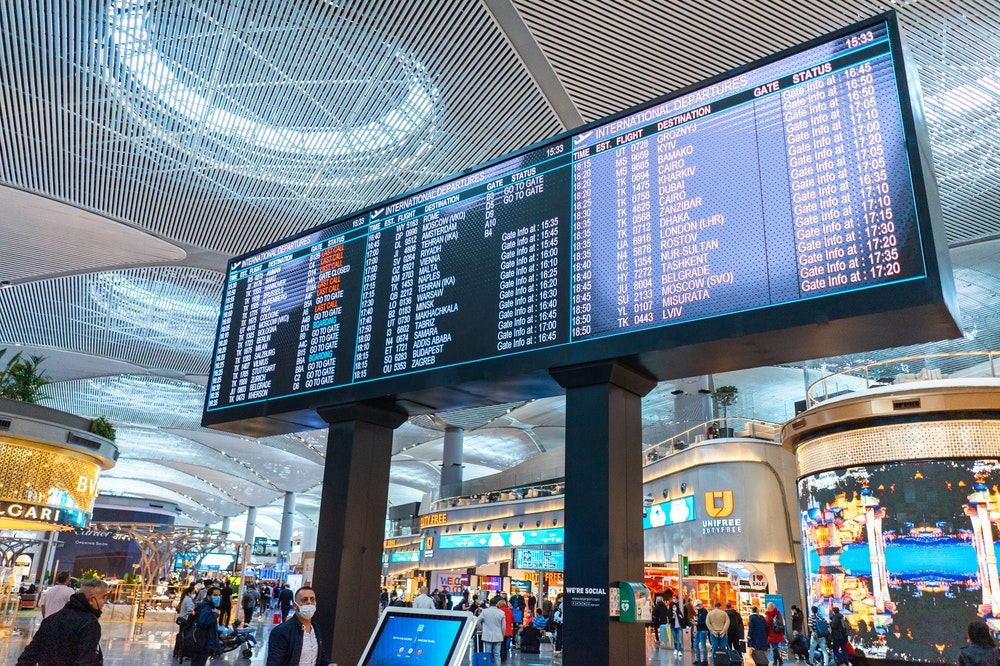If your flight with Wizz Air or another European airline was delayed, cancelled, or disrupted, you may already know that EU Regulation 261/2004 (EU261) and UK261 give you the right to compensation in many cases. But here’s the catch: airlines often try to avoid paying by giving passengers excuses that sound convincing at first glance.
In this article, we’ll uncover the most common excuses airlines use to deny EU261 compensation — and show you how to respond.
Check your compensation online.
Common Excuses Airlines Use to Deny EU261 Compensation (and How to Counter Them)
1. “It Was Extraordinary Circumstances”
This is the number one excuse. Airlines often argue that the delay or cancellation was caused by extraordinary circumstances, meaning something beyond their control.
- True examples: severe weather, airport closures, air traffic control strikes, or security risks.
- False examples: technical faults, crew shortages, or strikes by the airline’s own staff.
How to counter it: Ask the airline for written proof of the cause. Cross-check with official weather reports or news. If they blame “technical issues” or “crew shortages,” remind them that these are not extraordinary under EU261/UK261.
Learn more: EU Regulation 261 of 2004: Extraordinary Circumstances
2. “It Was a Technical Problem”
Airlines sometimes argue that a mechanical or technical issue is extraordinary. Courts have ruled otherwise: technical problems are considered the airline’s responsibility because they are part of regular operations.
How to counter it: Cite EU case law (Wallentin-Hermann v. Alitalia, 2008), which confirmed that technical faults don’t exempt airlines from compensation.
3. “The Delay Wasn’t Long Enough”
Another common excuse is saying your delay doesn’t meet the threshold.
Remember:
- 3+ hours delay at final destination = EU261 compensation due.
- Less than 3 hours = no compensation.
How to counter it: Check your actual arrival time, not just departure. Arrival counts when the plane doors open, not when the wheels touch down.
Check your compensation online.
4. “You Accepted a Voucher, So No Compensation”
Airlines sometimes issue vouchers instead of paying cash, hoping passengers won’t ask for more. But under EU261/UK261, you can always demand cash compensation instead of vouchers, unless you explicitly agreed otherwise.
How to counter it: If you were given a voucher without clear consent, contact the airline and request cash. They are legally obliged to exchange it.
Learn more: When Wizz Air Can Offer Vouchers (and If You Should Take Them)

5. “The Flight Was Outside the EU”
Airlines may claim you aren’t covered because your route was outside Europe.
The truth is:
- If your flight departed from the EU/UK, EU261/UK261 applies, regardless of destination or airline.
- If your flight arrived in the EU/UK on a European airline, you’re also covered.
How to counter it: Check whether Wizz Air (or another EU/UK carrier) operated the flight. If yes, you’re protected.
Bonus Tip: If your flight is operated by a non-European carrier, EU and UK regulations apply only when you depart from Europe, not when you arrive. For example, if your Qatar Airways flight departs from a European airport and lands outside Europe, you may be entitled to compensation. But if your disrupted Qatar Airways flight departs from Qatar and arrives in Europe, compensation is not available.
6. “You Didn’t File the Claim Correctly”
Some airlines reject claims due to missing forms or incorrect details.
How to counter it: Double-check the claim form, keep copies of all communication, and resubmit if needed. You can also escalate to the Civil Aviation Authority (CAA) in the UK or the relevant National Enforcement Body (NEB) in the EU.
7. “You Submitted Your Application Too Late”
Some airlines try to dismiss claims by saying they’re submitted too late.
In reality, this is often not true. The actual time limit for filing a EU261 compensation claim under EU Regulation 261/2004 depends on national laws, not on what the airline tells you. In many EU countries, you can still claim several years after the flight — usually between two and six years, though in some places the period is shorter.
So even if the airline insists it’s too late, you may still be well within your rights to pursue compensation.
EU261 Compensation: Final Tips to Maximize Your Claim
Don’t be discouraged if your first claim is rejected — it’s common.
Always ask for evidence when an airline denies responsibility.
If the airline refuses to cooperate, escalate to the CAA, NEB, or use Alternative Dispute Resolution (ADR).
Many excuses airlines give are misleading. By knowing your rights and challenging their claims, you stand a much better chance of getting the compensation you deserve.